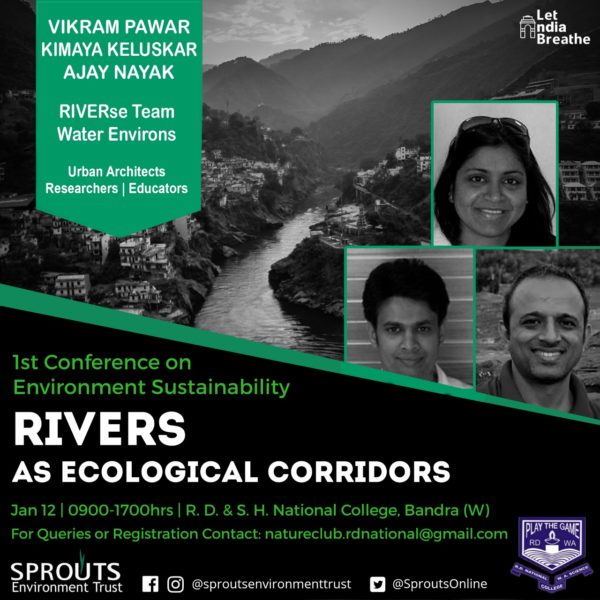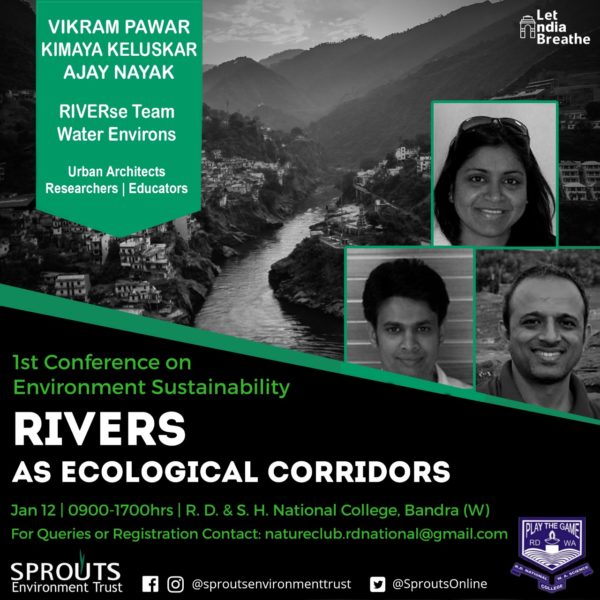Rivers as Ecological Corridors
Authors: Vikram Pawar, Ajay Nayak and Kimaya Keluskar
In a space challenged urban context like Mumbai, there is an urgent need for citizens, state mechanisms and related experts to come up with a common and sustainable vision and action plan for its Rivers, Streams and water bodies. In its quest to reclaim more and more land and in the name of flood protection, city infrastructure needs and beautification, the current models of development are strangulating the rivers, streams and water bodies. The otherwise resilient Ecologies are rendered vulnerable by the insensitive planning and implementation.
The authors believe that urban rivers including their edges should be restored as ecological corridors connecting the forests on higher grounds with the mangroves at the coast or vegetated edge of the basin where the rivers drain themselves. They see it as a pragmatic solution to create better and healthier living environments.
They have been working on the hypothesis that physical state of the river is a resultant of the perception of stakeholders and the relationship they share with the river. Thus the gradual degeneration of the river edges and ecologies and the subsequent “concretisation of edges” measures adopted by State mechanisms is a result of the change in perception of the river from being the “cared-for frontage” from where the resources are harnessed to becoming a “neglected backyard” where consumption waste is dumped without treatment. The attempt is to reverse this perception amongst all the stakeholder. The authors advocate the role of Bio– remediation at source (or as close to the source) as critical to rejuvenation and nurture of the river edges and ecologies.

Rivers as Ecological Corridors
Authors: Vikram Pawar, Ajay Nayak and Kimaya Keluskar
In a space challenged urban context like Mumbai, there is an urgent need for citizens, state mechanisms and related experts to come up with a common and sustainable vision and action plan for its Rivers, Streams and water bodies. In its quest to reclaim more and more land and in the name of flood protection, city infrastructure needs and beautification, the current models of development are strangulating the rivers, streams and water bodies. The otherwise resilient Ecologies are rendered vulnerable by the insensitive planning and implementation.
The authors believe that urban rivers including their edges should be restored as ecological corridors connecting the forests on higher grounds with the mangroves at the coast or vegetated edge of the basin where the rivers drain themselves. They see it as a pragmatic solution to create better and healthier living environments.
They have been working on the hypothesis that physical state of the river is a resultant of the perception of stakeholders and the relationship they share with the river. Thus the gradual degeneration of the river edges and ecologies and the subsequent “concretisation of edges” measures adopted by State mechanisms is a result of the change in perception of the river from being the “cared-for frontage” from where the resources are harnessed to becoming a “neglected backyard” where consumption waste is dumped without treatment. The attempt is to reverse this perception amongst all the stakeholder. The authors advocate the role of Bio– remediation at source (or as close to the source) as critical to rejuvenation and nurture of the river edges and ecologies.

